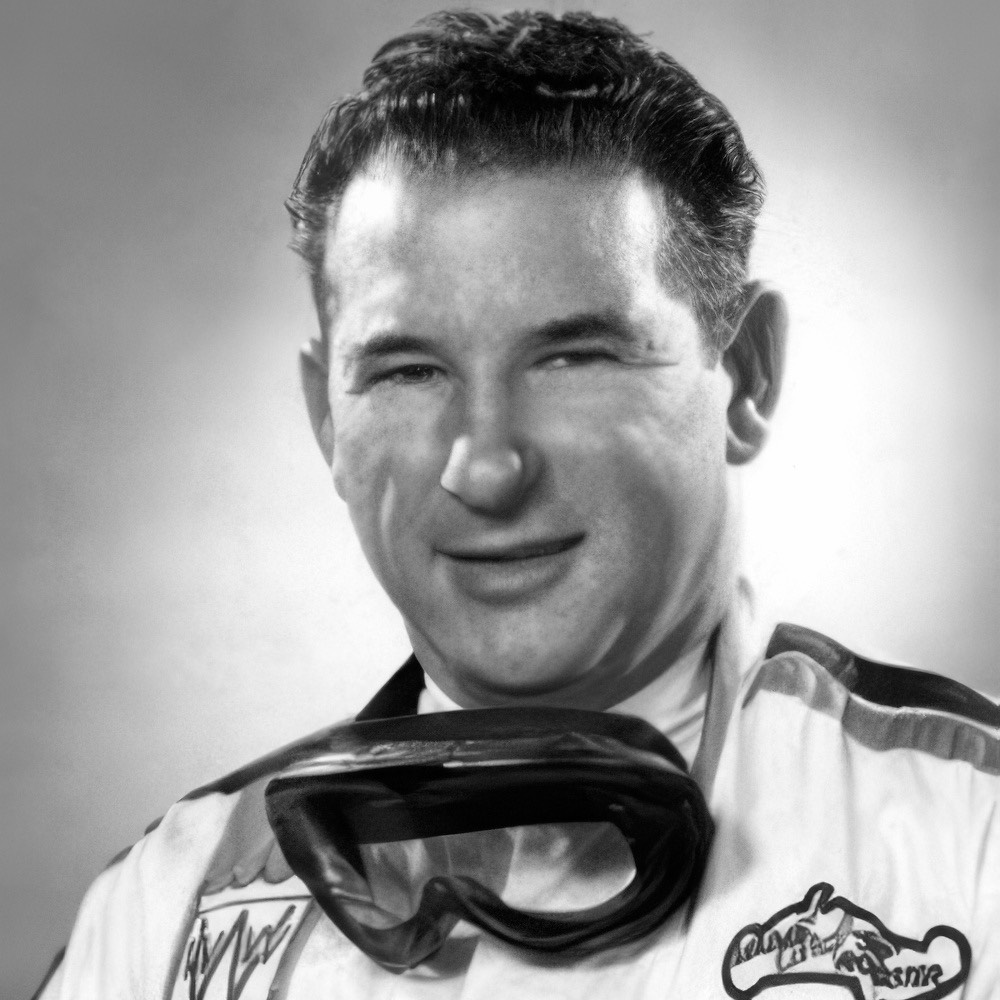
Rodger Ward
Career Statistics
Biography
Rodger Morris Ward (10 January 1921 - 5 July 2004) was an American racing driver who won two Indianapolis 500s and two National Championships while briefly competing in Formula One, becoming one of the finest drivers of his generation in American open-wheel racing. Born in Beloit, Kansas, Ward moved with his family to California by 1930. At age 14, he built a Ford hot rod, beginning his lifelong involvement with automobiles and racing. Ward served as a P-38 Lightning fighter pilot during World War II, demonstrating exceptional skill in aerial combat.
He enjoyed flying so much that he initially considered making it his career rather than racing. He transitioned to flying B-17 Flying Fortress bombers and was so proficient that he was retained as a flight instructor, training other pilots for combat operations. Ward is generally regarded as one of the finest drivers of his generation in American racing, winning two USAC National Championships and two Indianapolis 500s, both in 1959 and 1962. These championships and 500 victories established him among American open-wheel racing's elite competitors.
He also won the AAA National Stock Car Championship in 1951, demonstrating versatility across different racing categories. Ward ran the Indianapolis 500 15 times between 1951 and 1966, taking victory in 1959 and 1962, finishing second in 1960 and 1964. From 1959 to 1964, Ward remarkably finished in the top four every year at Indianapolis, a level of consistency few drivers have matched. This six-year stretch of excellence demonstrated his mastery of the Speedway and his ability to contend for victory year after year.
Because the AAA/USAC-sanctioned Indianapolis 500 was included in the FIA World Drivers' Championship from 1950 through 1960, Ward's Indianapolis performances counted toward the Formula One World Championship. Ward was one of the few Indianapolis drivers to also enter a European-style road race Grand Prix when he brought his Kurtis Kraft-Offenhauser to Sebring for the 1959 United States Grand Prix. He qualified last, 43.8 seconds behind polesitter Stirling Moss, demonstrating the vast difference between Indianapolis oval racing cars and purpose-built Formula One road racing machines.
He retired after 20 laps with a fading clutch, ending his Formula One road racing attempt. In 1963, Ward drove a BRM Formula One car at the United States Grand Prix at Watkins Glen, making another brief foray into European-style Formula One racing, though again without success against specialized road racing cars and drivers. Ward had 26 victories in his 150 starts between 1950 and 1966, finishing in the top ten in more than half of his races, an exceptional record of consistency and competitiveness. His success rate demonstrated his intelligence, racecraft, and ability to preserve both himself and his equipment while maintaining competitive pace.
In 1966, after finishing fourth at Indianapolis, Ward made a painful announcement at the post-race banquet: "I always said I'd quit racing when it stopped being fun. Today it wasn't fun anymore." This honest assessment led to his retirement from racing, as he refused to continue competing once the joy had gone. Following his retirement, Ward remained involved in motorsport and was inducted into various halls of fame recognizing his achievements.
Rodger Ward passed away on 5 July 2004, remembered as one of American open-wheel racing's greatest champions, a driver whose two Indianapolis 500 victories and national championships placed him among the sport's immortals.